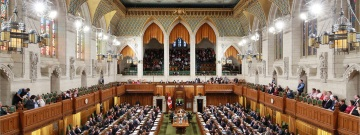Chapter 11 Questions

If the essence of Parliament is Government accountability, then surely the essence of accountability is the Question Period in the Canadian House of Commons.
SPEAKER JAMES JEROME
(Mr. Speaker, p. 51)
The right to seek information from the Ministry of the day and the right to hold that Ministry accountable are two of the fundamental principles of parliamentary government. Members exercise these rights principally by asking questions in the House. The importance of questions within the parliamentary system cannot be overemphasized and the search for or clarification of information through questioning is a vital aspect of the duties undertaken by individual Members.1 Questions may be asked orally without notice or may be submitted in writing after due notice.
Each sitting day, time is set aside for the purpose of asking oral questions. Question Period is a unique and distinct part of the daily program of the House. Members who are not satisfied with the answer they receive to an oral question may pursue the matter at greater length during the Adjournment Proceedings, which occur at the end of every sitting except on Fridays.
Written questions, usually more detailed than oral questions, appear on the Order Paper after due notice. Responses are provided during Routine Proceedings under the rubric “Questions on the Order Paper”.
This chapter outlines the rules and practices of the House regarding oral and written questions, including the role of the Speaker in these matters, as well as the history and the authority for each kind of question.